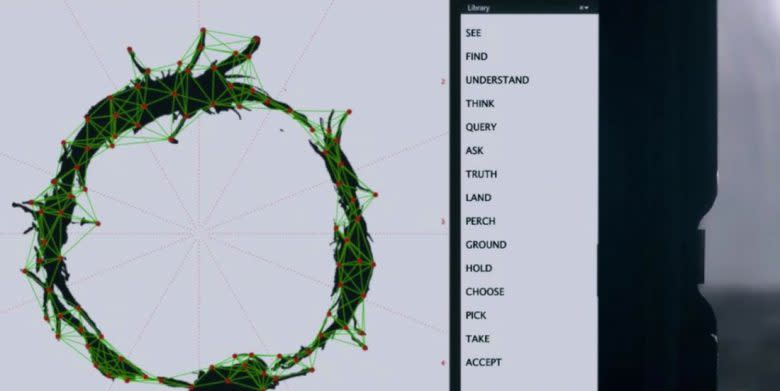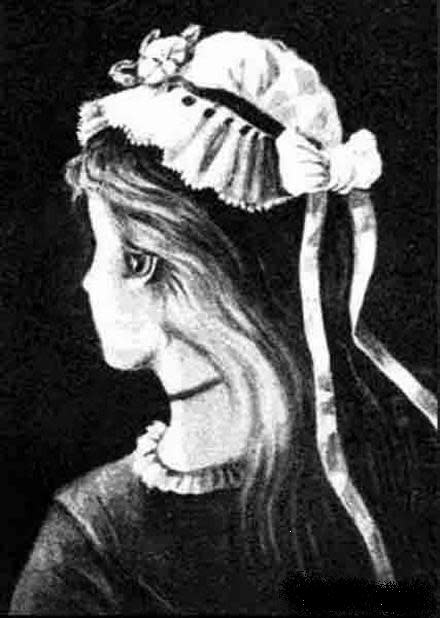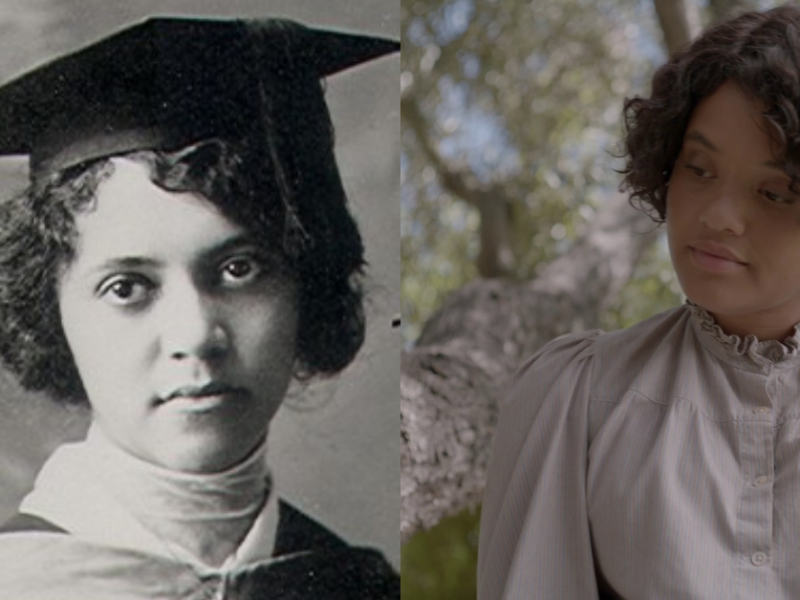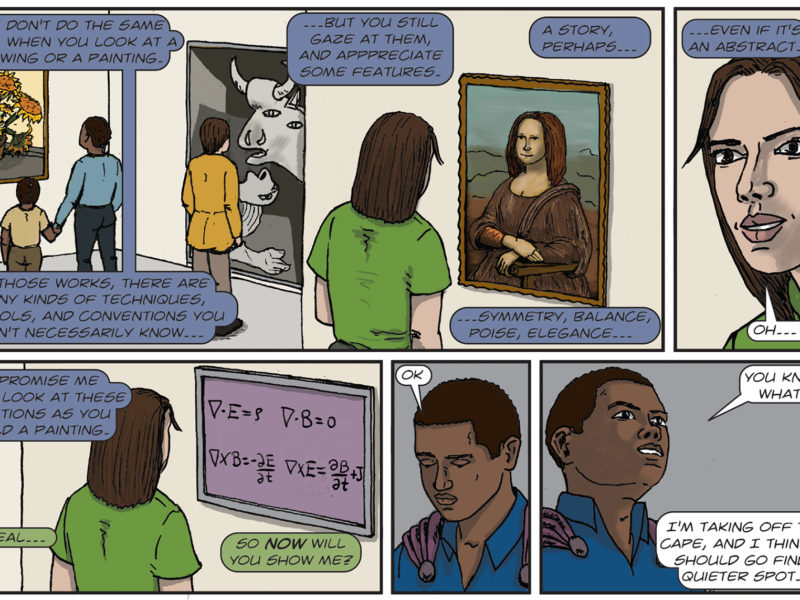Communication is one of the messiest things we humans do on a daily basis. We translate the thoughts inside our head into words that another person (hopefully) can understand. Assuming this other person shares a common language and culture, this should be easy (most of the time). But even when we do share a common language and culture, misunderstandings can happen. If we are visited by aliens, how do we communicate with them, assuming they can understand us? How do we discover their intent, and convince them we are a peaceful species? What exactly is the meaning of Arrival?
This is the problem that Dr. Louise Banks (Amy Adams) faces in the sci-fi hit, Arrival. The movie is based on Ted Chiang's short story, "Story of Your Life." In the movie, Louise must not only figure out the alien's intent but whether we can decipher their language so they can communicate with us. To do so, she tackles this problem in the way any scientist does — by forming a hypothesis, testing it, and drawing a conclusion. In the process, she not only learns a new language but discovers how an alien species perceive space and time itself. In so doing, both the book and movie explore some of the deeper philosophical questions in both physics and linguistics: Can we describe reality or is it merely a construction of our language?
The Linguistic Easter Eggs
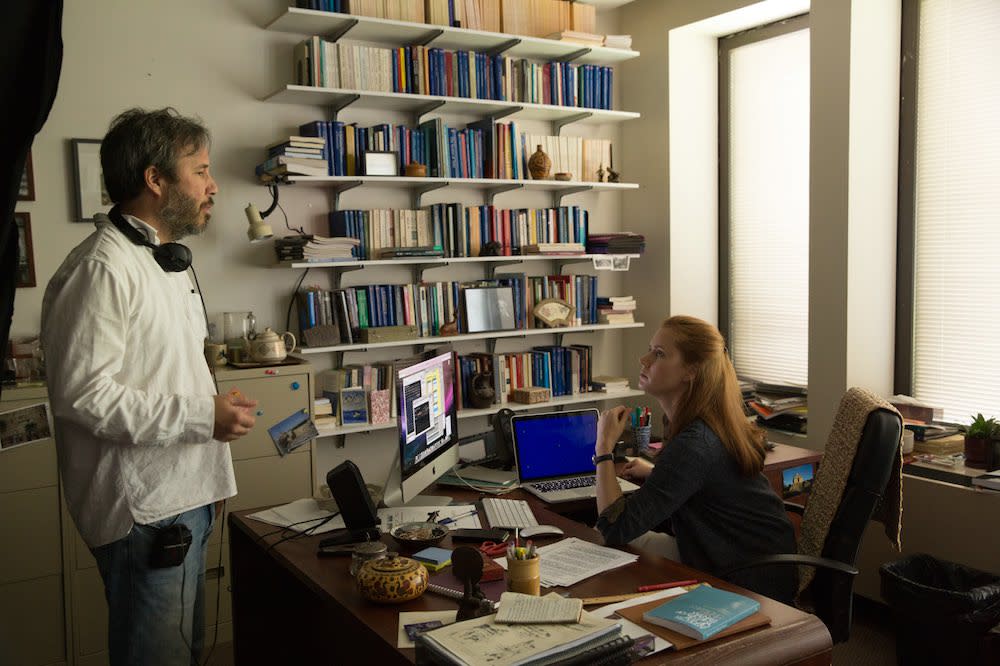
Banks is a linguist; she studies language's form and meaning. Many of the theories in the field are built on exploring the similarities and possible differences between all languages. Much of which was developed from studying languages like English, French, and German. Linguists are interested in seeing how their theories can account for less-known and less-studied languages.
The movie pays tribute to the field with a few well placed Easter Eggs spread throughout Dr. Banks' office. Ben Zimmer describes some of these Easter Eggs in his blog Language Log. While they are difficult to see in both the trailer and movie, they can be seen in one of the film's high-resolution publicity stills.
One item that stands out is a copy of Noam Chomsky's Aspects of the Theory of Syntax. In this book, Chomsky, who is known as the father of modern linguistics, presents a more extensive reformulation of his theory of syntax first introduced in the 1950s.
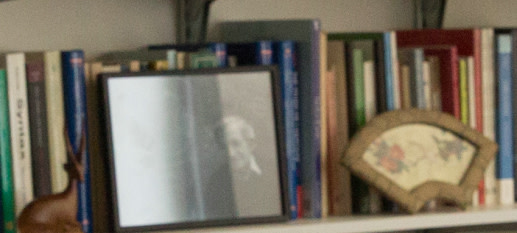
In case it was not obvious how heavy a role syntax plays in the movie, there are several more books on the subject. If you squint hard enough there is also Andrew Carnie's Syntax, and David Adger's Core Syntax.
The Science Behind The Movie
The movie focuses on a particularly contentious hypothesis known as the Sapir-Whorf hypothesis, or Whorfianism. It states that language, rather than being a means to express our thoughts and ideas, shapes the way we perceive and experience the world. Though contentious, there is some support for the idea.
English and Russian both use different terms to divide the color spectrum. Unlike English, the Russian language makes a clear distinction between lighter shades of blue ("goluboy") and darker shades ("siniy") — there is no generic word for blue in Russian. This distinction and treating shades of blue as separate colors go beyond our ability to describe them. A study by Jonathan Winawer shows that Russian-speakers are faster at differentiating between these shades of blue than English speakers. This does not mean that English speakers can't distinguish between different shades of color in the same way Russian speakers can. They can and they do. As the study author says:
"The critical difference in this case is not that English speakers cannot distinguish between light and dark blues, but rater that Russian speakers cannot avoid distinguishing them: they must do so to speak Russian in a conventional manner. This communicative requirement appears to cause Russian speakers to habitually make use of this distinction even when performing a perceptual task that does not require language."
There are two ways we can interpret Sapir-Whorf. The weaker form, known as linguistic relativity, says there is a correlation between language and worldview. In other words, different language communities experience reality differently. The stronger version, known as linguistic determinism, says that language alters the way you perceive and view reality.
The aliens in Arrival use two languages to communicate: Heptapod A and Heptapod B. Heptapod A is spoken, while Heptapod B is their written language. This can be seen in the form of a circular logogram. It must be noted that the written form of the heptapod language does not encode the sounds of the spoken form of their language. Some human languages are like this with certain dialects of Chinese being one such example. The Chinese language is made up of characters that stand for words or concepts. These characters are not made up of individual symbols that stand for individual sounds in the way English does; the Chinese language is not phonetic in the way English is.
Free Will And The Heptapod Language
The circularity of the heptapod language goes beyond a written form of communication. It is also an expression of the Heptapod cyclical worldview where the past, present, and future can all be seen at the same time. It makes sense that their language would reflect this (at least if Sapir-Whorf had anything to say). As Louise learns their language, it changes how she perceives time. She has recollections of her daughter that sometimes help her as she tries to decode the heptapod language. We soon discover these events, as she remembers them, actually take place in the future. In the third act, Louise needs to avert what could be an act of war between her species and the heptapods. In one of her flashforwards, she recalls a future meeting with the Chinese general, Shang (Tzi Ma), who tells her that it was her phone call that changed his mind. He then proceeds to tell her what she needs to avert a war.
This leads to some profound implications. The heptapods do not see possible timelines but instead see one future — a future that will happen. The same applies to Louise as she learns the heptapod language and it changes her perceptions of time. The future she sees with the Chinese general isn't one that might happen. It will happen. During her meeting, she tells him that she doesn't know his personal number upon which, General Shang corrects her and shows her his phone number. Louise then uses this knowledge from her flashforward recollection to call the general. It is ultimately this call that convinces him to stand down the Chinese military forces.
This scene is interesting because of its implications for free will. Will this future meeting play out the same or differently in the future? From what we know of heptapod perception of time, it can not. What happens between Louise and the Chinese general, or rather what will happen, will not change as Louise remembers it in her flashforward. So the question becomes: Does free will exist?
Some passages in Chaing's Story of Your Life answers this question:
“The heptapods are neither free nor bound as we understand those concepts; they don't act according to their will, nor are they helpless automatons. What distinguishes the heptapods' mode of awareness is not just that their actions coincide with history's events; it is also that their motives coincide with history's purposes. They act to create the future, to enact chronology.”
This means that the heptapods know what will happen in the future and, when it becomes the present, choose to not deviate from the script. Of course, it can be argued, from this, that freedom is an illusion. Chaing says it is not. Again the book says:
“Freedom isn't an illusion; it's perfectly real in the context of sequential consciousness. Within the context of simultaneous consciousness, freedom is not meaningful, but neither is coercion; it's simply a different context, no more or less valid than the other.”
Chaing's story argues that both interpretations, where freedom is real and not having any meaning are "correct." We just can't see both at the same time. This is similar to the optical illusion where you either see a beautiful young woman whose face is turned away from the viewer, or you see the wart-nosed crone. They both exist in the image but you can never see them both at the same time.
Louise's knowledge of the future is incompatible with what she knows about free will. In the book she says:
“What made it possible for me to exercise freedom of choice also made it impossible for me to know the future. Conversely, now that I know the future, I would never act contrary to that future, including telling others what I know: those who know the future don't talk about it.”
Louise can make conscious choices as long as she does not know the future. If she does know what will happen, she must act accordingly to how those events will play out. This raises the question: If the heptapods know the future, and everything they are going to see or hear, what is the point of developing language at all? In this case, language is not merely a form of communication but also one of action.
According to speech act theory, the utterance of certain words or phrases has a performative function. Statements like "You're under arrest," “I christen this vessel,” or “I promise” are all performative — a speaker performs the action only by uttering the words. Similarly, everyone anticipates the words, "I pronounce you husband and wife," but until a priest or minister actually says the words, the ceremony does not count.
Deciphering the Meaning of Arrival
This means that the Heptapod language performative. Instead of being used to inform, to express ideas and thoughts, their language is used to actualize. Heptapods know what is going to be said in any conversation but, to make anything true, the conversation has to take place in the same way a minister has to utter the words to make the ceremony valid. When Louise tells the general she does not know his number, she is merely playing a part. She must utter the words to make the general give her the information she needs.
The meaning of Arrival and its exploration of free will is what gives the movie a somewhat tragic emotional tone. Louise knows the future of her unborn daughter. She knows her marriage to her future husband, the man who will be the father of her child, will end, but she can do nothing to prevent any of this because she has seen (and knows) the future. Lousie must act according to the way her future will play out — she can not deviate from the script. This and its realistic portrayal of the science of linguistics and how a linguist might decode a language they are encountering for the first time makes the movie a must-watch film.




